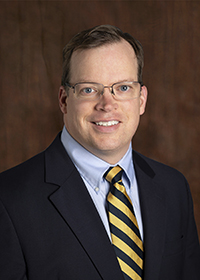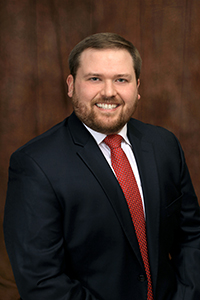While having her appendix removed six years ago, Dina Carr learned she had a kidney problem. Each year the nurse from Chatham, IL, would have a kidney function test to monitor her condition, in which the tube that drains urine from one of her kidneys to her bladder was blocked. That pushes urine back into the kidney, which can cause loss of kidney function, infections and pain.
By November 2021, the test showed what Dina called a “significant decrease” in kidney function. She also began feeling back pain. It was time to act.
But the surgery schedules of hospitals and providers in Dina’s area of Illinois were full. She was told it would be April – five months after receiving her test results – that surgery could be performed.
 Determined to protect her kidney from further damage, Dina asked friends who they would recommend to treat her condition. One name kept coming up - Dr. David Lieber. Dr. Lieber practiced in the Springfield, IL, area before moving to Blessing Health in Quincy recently.
Determined to protect her kidney from further damage, Dina asked friends who they would recommend to treat her condition. One name kept coming up - Dr. David Lieber. Dr. Lieber practiced in the Springfield, IL, area before moving to Blessing Health in Quincy recently.
“A friend’s husband made the comment that if his wife needed this type of surgery, they would choose Dr. Lieber,” Dina said.
Dina was also aware of Dr. Lieber’s reputation from his time in Springfield.
“We had a really good friend that had bladder reconstruction performed by Dr. Lieber, due to cancer,” she said. “That’s a huge surgery. I just always had heard really good things about Dr. Lieber.
After earning his medical degree from Southern Illinois University School of Medicine, Dr. Lieber completed a residency at the school in urology and a fellowship in endourology - a subspecialty in urology where minimally invasive techniques are used to inspect the urinary tract and perform surgery. Dr. Lieber is also certified by the American Board of Urology.
From the moment Dina called the Blessing urology department, she knew she made the right call. A little over a week later, she was at Blessing Hospital for surgery to repair her kidney problem.
“Oh my gosh,” she exclaimed. “I could not believe they were getting me in this quickly. It was awesome.”
“She was fairly uncomfortable,” said Dr. Lieber of Dina, referring to the pain caused by deteriorating kidney function. “We adjusted our surgery schedule to address her pain.”
Dr. Lieber has extensive experience in robotic surgery, which is the way he repaired Dina’s condition. In addition to using robotic surgery in his own practice, he has taught robotic techniques to new urologists for the past 15 years. This way of doing surgery requires smaller incisions than “open” surgery, leading to less blood loss, shorter hospital stays and quicker recovery.
“We did a robotic pyeloplasty to help her kidney drain more effectively,” Dr. Lieber said. “She did extremely well.”
Dr. Lieber called Dina’s condition rare, but not uncommon. He sees about a half a dozen similar cases each year.
“He was so thorough and informative,” Dina said of Dr. Lieber. “He made me feel at ease.”
Dina was impressed with everyone involved in her care - from the Blessing urology department team, to the surgery staff, to the caregivers on the nursing floor where she stayed overnight.
 Another of Blessing’s urologists, Dr. Brad Holland, came to see Dina the day after her surgery and cleared her for discharge from the hospital to return home to Chatham.
Another of Blessing’s urologists, Dr. Brad Holland, came to see Dina the day after her surgery and cleared her for discharge from the hospital to return home to Chatham.
“Very professional. People were really kind and I appreciated that a lot,” she said. “It’s definitely worth driving a couple of hours to get great healthcare.”
Dr. Lieber credits teamwork among the Blessing urology staff - some who have worked together as long as 20 years - for positive treatment outcomes and satisfied patients. He’s still humbled when patients travel a hundred miles or more for their care.
“This is a testament to the whole surgical team we’ve put together,” Dr. Lieber said. “We’ve assembled a quality team, and we put patients first.”
For more information on the providers and the services of the Blessing urology department, go to blessinghealth.org/urology.
